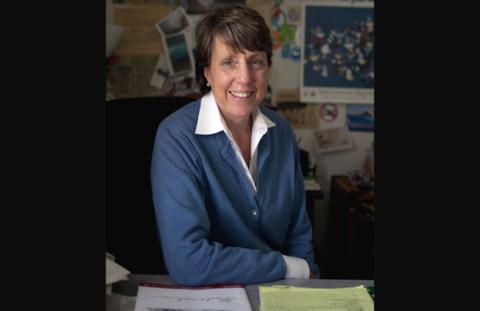
Clean Ocean Action
Creating campaigns bringing commercial fishermen, boaters, divers, senior citizens, elected officials and local businesspeople together to defend the ocean makes this job motivating and rewarding.
Education
- B.A., Marine Policy, University of Rhode Island
Salary
$40,000 - $60,000
What is your current job and what does it entail?
As executive director of Clean Ocean Action, I am responsible for developing and implementing campaigns and programs, as well as the staffing, administrative and financial obligations. Clean Ocean Action (COA) is a nonprofit ocean advocacy organization consisting of over 125 fishing, boating, diving, conservation, student and civic groups concerned with the water quality of the New York Bight, the area of water from Montauk Point, N.Y., to Cape May, N.J. COA uses science, education, research and citizen action to improve and protect marine waters.
What was the key factor in your career decision?
Before joining COA, I was an intern at The James J. Howard Marine Sciences Laboratory with a goal of becoming a marine scientist. My job included monitoring marine animals exposed to various oil and gas pollutants. When exposed, the animals would often try to jump out of the tank, obviously experiencing great distress. After observing this reaction to pollutants and with the guidance of Dery Bennett of the American Littoral Society, I directed my career toward protecting the marine environment from pollution by using science, law and citizen action.
What do like most about your career?
I enjoy working with the many diverse interest groups and people who strive for protection of the ocean environment. Creating campaigns bringing commercial fishermen, boaters, divers, senior citizens, elected officials and local businesspeople together to defend the ocean makes this job motivating and rewarding. Empowering people to make a difference and improve the quality of life by reducing pollution is exciting. Finally, no two days are alike, making the job interesting and never dull.
What do you like least about your career?
It's frustrating striving for change against lethargic and apathetic government bureaucracies. Frequently, leaders of agencies are professional bureaucrats who have regulatory and legal responsibilities to protect our resources, but lack the political will or drive to challenge polluters by implementing or enforcing the laws. However, this is not always the case as some government employees are committed to their jobs and work hard to protect the environment. Long hours and administrative tasks are also challenges.
What do you do to relax?
I relax by reading and gardening. I also enjoy beachcombing, bodysurfing, and horseback riding, but rarely have time for these.
Who are your heroes/heroines?
My heroes include Rachel Carson and Ralph Nader.
What advice would you give a student who expressed an interest in pursuing a career in your field?
Have a deep personal commitment to the cause you choose and a technical background or understanding in the field of interest. Believe that making a difference is more important than making a high salary.
Are career opportunities in your field increasing or decreasing and why?
There are many options within the ocean advocacy community: education, outreach, law, policy, research and science. Career opportunities in environmental advocacy are likely to be on the rise with the increase in environmental awareness worldwide and the environmental challenges facing the world.
What will you be doing 10 years from today?
COA's goal is to put itself out of business. In 1997 it achieved its primary goal of ending the practice of dumping toxic waste in the ocean. However, with the current ocean pollution problems, it looks like COA will be around for some years to come. It is now focused on eliminating land-based sources of marine pollution and locking in successes achieved to date with a legislative campaign.

